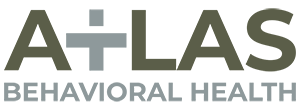Dry January is your reset button for the New Year. Think of it like giving your brain, liver, and mood a deep breath after a long, boozy stretch. For 30 days, you skip alcohol, and in return, you get better sleep, clearer thinking, and energy that doesn’t come from caffeine. You’d be surprised what a month without drinking can reveal.
Turning these 30 days into real change takes support, and sometimes that means having a plan beyond willpower. Whether it’s managing anxiety, building healthier habits, or working through deeper issues, professional mental health treatment can guide you toward lasting results.
This isn’t about quitting forever. It’s about remembering how good you feel without the blur.
What Is Dry January and Why Is It Gaining Momentum?
Dry January is when you press pause on drinking for 30 days, right at the start of the year. It’s become super popular because people want a fresh mind, better sleep, and real energy without alcohol in the mix.
You’re not alone if the holidays left you feeling worn out. A lot of people start the year looking to reset, not rehab. Dry January helps you figure out what life feels like without relying on a drink to relax, celebrate, or just get through a tough day.
For some, it’s the beginning of deeper healing and therapies like Cognitive Behavioral Therapy (CBT) can help you make that reset stick.
Dry January vs. Alcohol Detox: What’s the Difference?
Dry January is a choice. You stop drinking for a month to feel better, sleep deeper, and reset your routine. Alcohol detox, on the other hand, is what your body might need when you’ve been drinking too much for too long, and stopping suddenly could actually be dangerous.
Sometimes, people start Dry January and realize their body reacts badly; that’s a red flag. Medication-Assisted Treatment (MAT) and outpatient programs in Atlanta offer safe, flexible ways to step down alcohol use with medical support if needed.
The Physical and Mental Benefits of Dry January
Skipping alcohol for 30 days doesn’t just help your liver, it boosts your mood, sleep, focus, and even your skin. Dry January can make you feel like you again, the version without brain fog, bloating, or late-night regrets.
Physical Benefits You’ll Actually Notice
| Change | When It Happens |
|---|---|
| Better sleep | Week 1–2 |
| Clearer skin | Week 2–3 |
| More energy | Week 2 |
| Healthier liver | By week 4 and beyond |
Even after just a week, your body starts catching up. This Sober September post talks about how quickly the body bounces back when alcohol takes a break.
Mental & Emotional Changes That Stick
You might notice your mind feels lighter, like you finally got a good sleep after weeks of tossing and turning. Anxiety gets quieter. Your emotions aren’t bouncing all over the place.
If you’ve ever felt cloudy or disconnected, that clarity often returns fast. Vulnerability in recovery is part of the deal, and it’s a sign that your brain is getting back on track.
Week-by-Week Timeline: What to Expect During the 30 Days
Dry January is a little different for everyone, but most people feel big changes each week. Some days are hard. Some feel amazing. Knowing what’s coming can help you stick with it.
What Happens to Your Body and Mind, Week by Week
| Week | Body Feels Like… | Mind Feels Like… |
|---|---|---|
| 1 | Tired, craving drinks, sleep is tricky | Grumpy, foggy, unsure |
| 2 | Skin clears, and sleep gets better | Calmer, thinking feels smoother |
| 3 | More energy, less bloating | Proud, focused, less anxious |
| 4 | Body feels lighter, steady sleep | A clear mind, real motivation show up |
This Dry September post shows how similar changes show up even in different months.
By the last week, many people feel better than they have in a long time. If you’re already wondering what comes next, check out our outpatient options in Atlanta to keep that momentum going.
How to Prepare for a Successful Dry January
Dry January works best when you plan for it like you would a vacation or a job interview. The goal isn’t to be perfect. It’s to be ready for real-life moments where you might want to quit.
Start by removing alcohol from your home. Toss the wine bottles. Move the beer to someone else’s fridge. Little actions help a lot, especially if you’re starting to see patterns that may point to something deeper, like what’s explored in dual diagnosis treatment.
Small Steps That Make a Big Difference
-
Write down your “why” and keep it nearby
-
Tell close friends you’re trying this
-
Avoid bars or events where drinking is the main focus
-
Replace the habit, herbal tea, a mocktail, or sparkling water with lime
If you’ve tried before and slipped, don’t worry. Many of our clients at Atlas Behavioral Health succeeded after multiple tries, and support made the difference.
Helpful Tools, Apps, and Habits to Stay on Track
You don’t have to do Dry January alone. Some apps and tools make it fun, rewarding, and easy to track your progress.
At the start, use apps like Reframe or I Am Sober. These give you daily reminders, progress charts, and encouragement when you need it most.
A Few Tools You Can Try Today
-
Apps: I Am Sober, Reframe
-
Books: This Naked Mind, Quit Like a Woman
-
Podcasts: The Sober Curious Podcast, Recovery Elevator
-
Habits: Daily walks, mocktail nights, journaling your wins
Even just a good journal can help. One client started her journey during Sober September and used her journal like a cheerleader. It worked.
If you’re ready to add professional support to your toolkit, Atlas Behavioral Health is here with real people who actually care.
How Dry January Affects Your Relationships
Dry January isn’t just a break from alcohol, it can be a reset for your friendships and family connections, too. You start noticing how often people bond over drinks and how it feels to say “no thanks.” Navigating sobriety during social moments can help you stay grounded when others don’t understand your choice.
The Pressure to Drink Isn’t Always Loud
Sometimes the pressure is quiet. A friend offers wine without thinking, or someone jokes that you’re “no fun” now. These moments test you. But they also teach you. Many people find strength in setting boundaries and choosing themselves over old habits.
If alcohol is tied to your social life, trying a month away can show you who respects your boundaries and who doesn’t. Experiential therapies can also help you find new ways to stay social and connected, so your alcohol-free month feels fuller, not lonelier.
Creating New Ways to Connect
Plan ahead with sober-friendly hangouts. Game nights, coffee meetups, or a walk at the park beat loud bars and hangovers any day. During Sober September, one person started a weekly movie night and kept it going all year.
What If You Slip Up? It’s Not Over.
Let’s be real. You might have a drink during Dry January. It happens. But that doesn’t mean the whole month is ruined.
A Slip Isn’t the End, It’s a Signal
You didn’t fail. You learned. Ask yourself: What was happening before I drank? Stress, sadness, or a party? Use that moment to find your weak spots. These signs of alcohol abuse can help you understand what’s a habit vs. what’s a red flag.
Sometimes people slip because they didn’t have enough support. If that’s the case, outpatient mental health treatment in Atlanta can give you tools to stay on track. You don’t have to wait until it’s “bad enough.”
From Dry January to Long-Term Change
You made it through January. Now what? Some people go back to drinking, but differently. Others stay sober for good. Either way, you’ve gained clarity.
Short-Term Wins Can Turn Into Lifelong Habits
Maybe now you sleep better, feel calmer, or don’t need a drink to relax. That’s a win. You’ve broken patterns and proven to yourself that change is possible. Atlas Behavioral Health helps people build on that momentum.
Find What Works for You
It’s not about doing what everyone else is doing. Some people choose moderation. Some want sobriety. Others join support groups or go deeper into therapy. If Dry January opened your eyes, don’t shut them again. You can explore outpatient care, community support, or just keep taking it one clear-minded day at a time.
Real Voices: How Dry January Changed My Life
Dry January doesn’t just help your health, it can shift your mindset. When you take a break from alcohol, it gives your brain space to think clearly and your heart space to feel again.
People Just Like You Are Doing This
One woman who tried Sober September said, “I didn’t know how tired I was until I wasn’t.” That’s the power of pausing. You don’t need a huge reason, just curiosity is enough.
You’re Not Alone in This
No matter how many times you’ve tried before, your story still matters. Some folks quit for the month and never go back. Others take longer. The point is: every day without alcohol teaches you something real.
Conclusion
If you made it to the end of Dry January, or even partway, give yourself credit. You stopped. You thought. You showed up for yourself, and that’s more than most people ever do.
Some people return to drinking with more control. Others stay sober. Either way, your reset worked. You created space between you and alcohol, and that space is full of choice. Cognitive Behavioral Therapy (CBT) in an outpatient setting can help you explore what that choice looks like with support.
At the end of the day, it’s your story to finish. If your next chapter needs a team that listens, Atlas Behavioral Health is right here, ready when you are.






